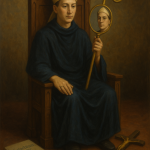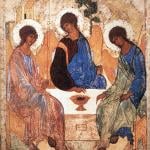Vatican City, Dec 17, 2014 / 12:08 am (CNA/EWTN News).- As inmates are moved by a letter Pope Francis has sent to the prison of a small town in central Italy, the news broke that a man serving a life sentence will be among those at an audience with Pope Francis Dec. 20. The Saturday meeting will be between the Roman Pontiff and members of the Community Pope John XXIII, which was founded by Fr. Oreste Benzi, who died in 2007. Members of the community will be received by Pope Francis on the occasion of the opening of Fr. Benzi's cause for beatification, and the list of participants includes Carmelo Musumeci, who was sentenced to life in prison for having committed a homicide in 1991. While in prison, Musumeci completed high school and then earned a law degree. Pope Francis addressed the issue of life imprisonment in an Oct. 23 address to delegates of the International Association of Penal Law, saying that “all Christians and men of good will are … called today to fight not only for the abolition of the death penalty, whether legal or illegal, and in all its forms, but also in order to improve prison conditions, with respect for the human dignity of the people deprived of their freedom. And I link this to life imprisonment. A short time ago the life sentence was taken out of the Vatican’s Criminal Code. A life sentence is just a death penalty in disguise.” The encounter between Pope Francis and Musumeci thus comes in the midst of a pontificate with particular pastoral concern for prisoners. Among his first decisions as Bishop of Rome was to celebrate Holy Thursday at a juvenile prison near the city. And meeting with prison chaplains on Oct. 23, 2013, he asked them to tell prisoners, “I am praying for them, I have them at heart, I am praying to the Lord and to Our Lady that they may be able to get through this difficult period in their lives in a positive way, that they may not become discouraged or close in on themselves.” These words encouraged the members of the Community Pope John XXIII to forward a request to have Musumeci among those who will meet Pope Francis Dec. 20. Longing to meet the Pope, Musumeci has addressed a letter to Pope Francis. “Pope Francis, I am now living the 24th year of a 'death penalty in disguise,’ as you call it. And since I got the news that brothers and sisters of the Community Pope John XXIII had included me in the list of people who will meet you in Vatican City State, I have been unable to sleep.” “Lost in sadness and melancholy, I confess, Pope Francis, that often no more hope lies in my heart. I am tired of hope, and counting the days and nights… I am also tired of waiting for death, and I confess that some nights I wish to go toward death, so as to end my penalty in advance.” As the Dec. 20 meeting is being prepared, Pope Francis sent on Dec. 14 a letter to inmates of the prison of Latina, which he delivered through Msgr. Yoannis Lahzi Gaid, Pope Francis' second secretary who spent several years as a deputy parish priest in Latina. Msgr. Lahzi Gaid gave the letter to Fr. Nicola Cupaiolo, the chaplain of the prison, who then gave the letter to the 120 prisoners, 30 of them are women imprisoned in the high security branch for crimes of terrorism or mafia. The Pope addressed all the prisoners who had written to him: “Reading your letters was a great comfort to me. It is impossible to me writing back to each of you, so I wish that each of you feel this letter as my personal response to him.” Wishing them a Merry Christmas, Pope Francis hoped that “hours, days, months and years that you have spent or you are spending in this prison are considered and lived nota s a wasted time or as a temporary punishment, but as a real occasion of growing in order to find the peace of heart and the strength to spring up, returning to live the hope in the Lord that never disappoint you.” Pope Francis also said he is pleased that many of the prisoners “are following a path of faith with the chaplain, Fr. Nicola, and with those are collaborating in being close to you not because of a duty but for their inner openness to sincerely consider you sisters and brothers.” Pope Francis sent to the prisoners a new Missal, so that “you could find in the Holy Mass the path of walking daily with the Lord … the needed food to sustain the path to salvation and liberation” that no prison “can prevent.” Read more















